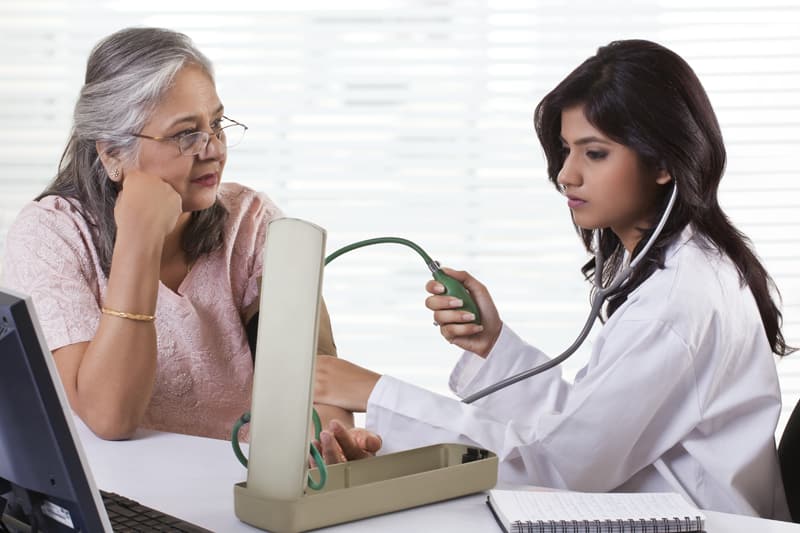Being over 60 was usually considered the autumn, or even the winter, of your life. However, with the advancements in medicine and other nutritional supplements, the average age span has increased considerably and most will agree that senior life definitely has its perks. You’ll have to agree, your children were right to push you to take better care of yourself.

To keep up with your lifestyle at that age, there are a few checks that everyone over the age of 60 should consider undergoing. These aren’t just for you as an individual, it’s equally important for caregivers to make sure that their family members – parents, grandparents and others at home – are also well looked after. So, whether you’re in that age group or you’re a member of a family with those in that bracket, these tests will ensure that there’s no looking back from achieving it all in those retirement years.
Here is a list of the medical check-ups all senior citizens should go through. These are simple tests that can be conducted even at local clinics or family doctors. Based on the results, they may recommend additional tests according to a specific profile.
1. Blood Pressure

If you’ve reached the age of 60 and somehow avoided being one of the millions of people around the world who are affected by high blood pressure, then hats off to you. However, as senior citizenship sets in, the chances of your blood pressure increasing also increases. Having a check done every 2 years keeps you in the clear if your pressure is normal. If your pressure is slightly elevated, you might consider a more frequent check-up. Purchasing a BP monitoring apparatus is probably the best bet if you happen to be dealing with high blood pressure for a while.
2. Regular eye checks
It’s commonly known that cases of eye diseases such as cataracts, glaucoma and macular degeneration increase with age. Getting in touch with your Ophthalmologist is the best way to find out how often one will need to have your eyes checked. Wearing glasses may seem quite common if you’re over a certain age, but it doesn’t hurt to keep your eyes healthy especially if you engage in activities that require good eyesight like driving, etc.
3. Hearing tests
Studies show that 25% of people between the ages of 65 and 74 suffer from hearing loss that’s actually treatable. The number increases to 50% after the age of 75. Get to a doctor and let them conduct a test just to be on the safe side. Again, like your eyes, hearing is quite important, not just for engaging in various day-to-day activities, but for leading a comfortable life.
4. Weight check

This one’s a double whammy, unfortunately. As you get older, muscle mass is converted to fat at a much higher pace. Besides this, you won’t burn as many calories as before, as your metabolism is slowing down. Keep a regular check on your weight and waistline. It’s definitely required as you wouldn’t want unexpected weight gain to stand between you and your retirement goals.
5. Cholesterol screening
High cholesterol is the main reason why people have heart attacks and strokes. The good news is that it’s easily treatable with medication and a good diet. So there’s little to fear if tested regularly to ensure you maintain a healthy eating lifestyle.
6. Breast and pelvic exam for women
The chances of breast cancer only increase with age. It’s also recommended that women over the age of 50 should have a mammogram every 2 years. Ask the consulting oncologist if this is necessary. And even though most of you may have reservations, a Pap smear and a pelvic exam are also necessary because believe it or not, older women can get pelvic and cervical cancer too.
7. Bone density test

According to some surveys, one in every five people above the age of 60 suffers from osteoporosis. A fracture of the hip or knee drastically increases the chances of disability or even death in your more advanced years. Women, in particular, should have a bone density test conducted sooner rather than later. These tests will ensure that you’re treated for any issues that could come up and you can lead an active lifestyle.
8. Blood sugar
Diabetes is one of the most common life-threatening diseases, but it doesn’t have to be. Regular tests can prove rather useful to control and manage blood sugar. The tests will also help you understand and better your diet so you don’t miss out on anything.
9. Thyroid hormone test

Doctors recommend that a Thyroid test should be conducted once every 5 years. However, for those who do not show symptoms of abnormal Thyroid hormone secretion, this test may not be necessary. Keep in mind that the common symptoms are hair loss, weight gain or weight loss, fatigue, and depression.





 1800-270-7000
1800-270-7000







